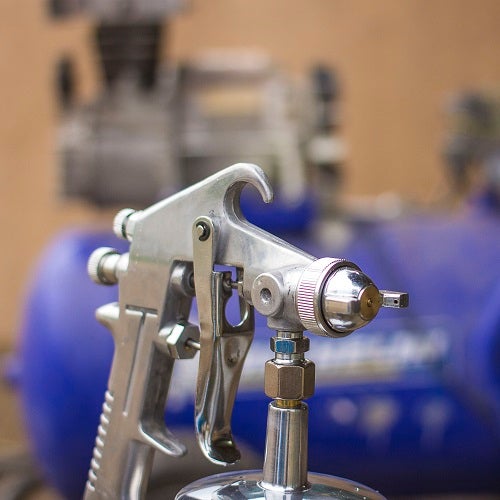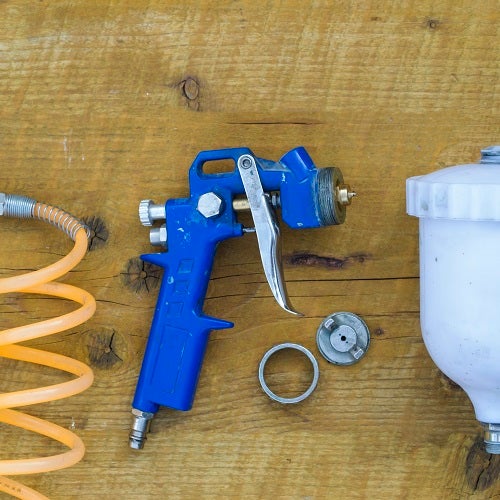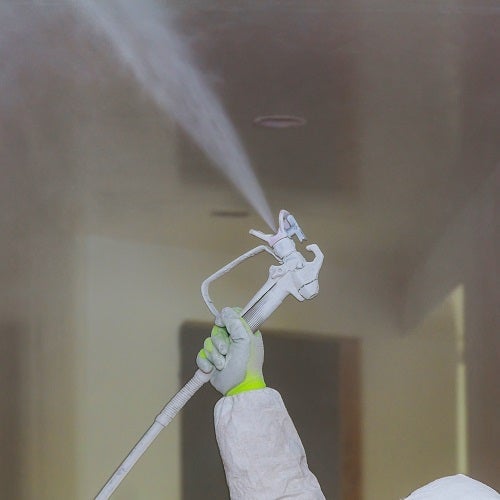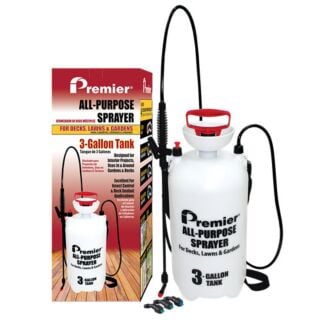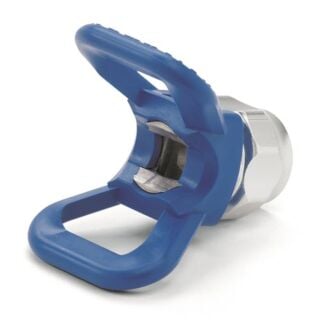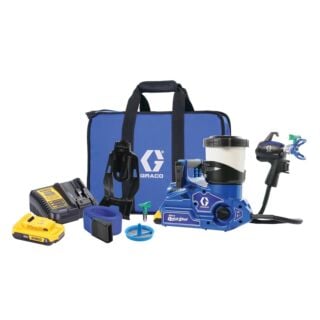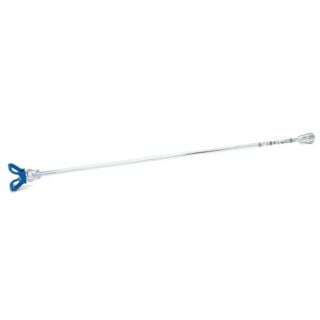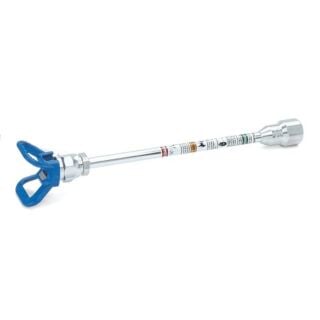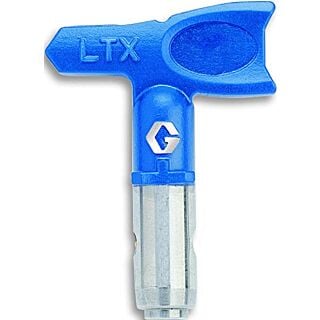Paint Sprayers & Equipment
Best Sellers
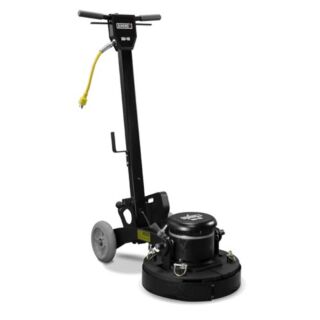 Simiron SG-16 Industrial Floor Grinder Machine Kit Including Hard-Medium Bond Segmented Diamond Plates SKU: SIMIRONFLRGRINDER16G
Simiron SG-16 Industrial Floor Grinder Machine Kit Including Hard-Medium Bond Segmented Diamond Plates SKU: SIMIRONFLRGRINDER16GStarting at $35.19
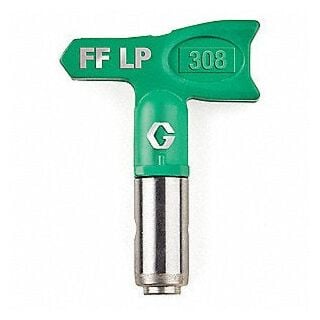 Graco Airless Spray Tip, Fine Finish Low Pressure, RAC X FF LP SwitchTip, 308 Tip Tip SKU: FFLP308$56.49each
Graco Airless Spray Tip, Fine Finish Low Pressure, RAC X FF LP SwitchTip, 308 Tip Tip SKU: FFLP308$56.49each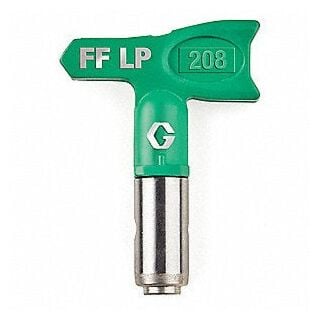 Graco Airless Spray Tip, Fine Finish Low Pressure, RAC X FFLP SwitchTip, 208 Tip SKU: FFLP208$56.49each
Graco Airless Spray Tip, Fine Finish Low Pressure, RAC X FFLP SwitchTip, 208 Tip SKU: FFLP208$56.49each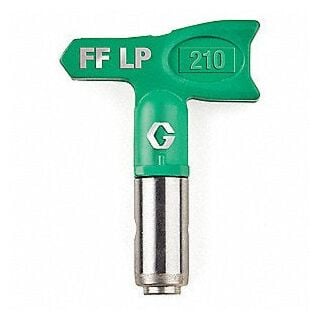 Graco Airless Spray Tip, Fine Finish Low Pressure, RAC X FF LP SwitchTip, 210 Tip SKU: FFLP210$56.49each
Graco Airless Spray Tip, Fine Finish Low Pressure, RAC X FF LP SwitchTip, 210 Tip SKU: FFLP210$56.49each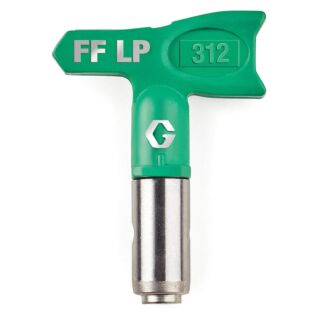 Graco Airless Spray Tip, Fine Finish Low Pressure, RAC X FF LP SwitchTip, 312 Tip Tip SKU: FFLP312$56.49each
Graco Airless Spray Tip, Fine Finish Low Pressure, RAC X FF LP SwitchTip, 312 Tip Tip SKU: FFLP312$56.49each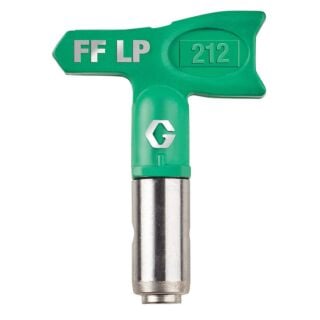 Graco Airless Spray Tip, Fine Finish Low Pressure, RAC X FF LP SwitchTip, 212 Tip SKU: FFLP212$56.49each
Graco Airless Spray Tip, Fine Finish Low Pressure, RAC X FF LP SwitchTip, 212 Tip SKU: FFLP212$56.49each
What can I paint with a paint sprayer?
You can use our paint sprayers in lots of different ways inside or outside of your home. Inside, they are ideal for painting interior walls, doors, cabinets, woodwork, and renewing furniture. Outside they're great for painting and staining exterior siding, fences, and decks much faster than with a regular paintbrush. You can also use an HVLP sprayer for fine finish painting projects when you do not want to see brush marks.
What can I paint with a paint sprayer?
You can use our paint sprayers in lots of different ways inside or outside of your home. Inside, they are ideal for painting interior walls, doors, cabinets, woodwork, and renewing furniture. Outside paint sprayers are great for painting and staining exterior siding, fences, and decks much faster than with a regular paintbrush. You can also use an HVLP paint sprayer for fine finish painting projects when you do not want to see brush marks.
How is an airless paint sprayer different from an HVLP sprayer?
Airless paint sprayers use very high pressures to force paint out of a small opening at the tip. The high pressure and small opening cuts the paint into smaller particles. Conversely, an HVLP (high volume low pressure) sprayer uses lower pressure and a bigger opening. This helps you get a thicker coat and control your spray pattern a lot easier than with airless sprayers. That's why HVLP paint sprayers are often used as a finishing tool.
What is the best DIY paint sprayer?
Wagner and Graco make some great DIY paint sprayers for home use. Some models that we recommend are the Wagner Control Spray 250 paint sprayer, the Graco Magnum X5 airless paint sprayer, and the Graco Magnum X7 airless paint sprayer.
What paint do you use in a paint sprayer?
Airless paint sprayers can use latex paint, primers, and paint with thinners. However, thicker paints like latex are not suitable for HVLP paint sprayers as they can create blockages.
How can I clean my paint sprayer?
To clean your paint sprayer, you need to use soapy, warm water for latex-based paints, and mineral spirits for oil-based paints. The back of most paint spray containers will tell you the most appropriate cleaning solution.

